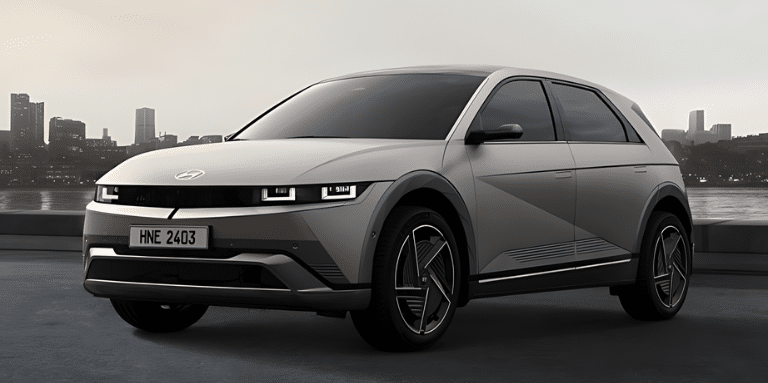
Considering an electric car? They offer lower maintenance costsThey also reduce driving costs and contribute to cleaner urban air. Although the initial price is higher, government incentives and long-term savings make them financially attractive. The expanding charging infrastructure alleviates the autonomy anxietyAlthough it is necessary to replace the battery every five years. Hybrid options and advances in battery technology increase their attractiveness. If sustainability and economic efficiency are important to you, an electric car can be a smart choice. Explore further to understand the full picture and assess its compatibility with your needs.
Contents
Electric cars offer several convincing advantages, including lower maintenance costs due to its considerably smaller number of moving parts.
With only around 20 moving parts compared to 2,000 in traditional combustion engines, you'll experience significant savings in maintenance. Studies show that electric vehicles (EVs) have 25% lower maintenance costs.
In addition charging infrastructure is expanding rapidly, making it easier to charge your EV at home, in garages or even in private car parks. This convenience eliminates frequent trips to the gas station, adding efficiency in terms of both time and cost.
The reduced noise levels of electric cars contribute to a driving experience smoother and safe. Understanding these advantages helps to understand how EVs can be a practical and economical choice for your needs transportation.
The initial cost of EVs (electric vehicles) may be higher, but they can save you at least 20% in driving costs, making them economically advantageous in the long term.
Electric vehicles (EVs) offer considerable cost savings, especially with the lower cost of electricity compared to diesel or gasoline. In addition, you can benefit from various tax incentives and subsidies, which further reduce the total expense.
Consider these economic benefits:
These factors help offset the initially higher purchase price, making EVs a smart financial choice.
Despite the environmental cost of battery production, electric vehicles (EVs) make a considerable contribution to reducing urban air pollution and greenhouse gas emissions. EVs do not emit pollutants during operation, improving air quality in cities. In addition, advances in battery recycling are addressing the environmental impact of battery disposal and production. EVs play a crucial role in sustainable urban mobility and climate change mitigation efforts.
| Appearance | Impact | Solution |
|---|---|---|
| Air Quality | No exhaust emissions | Improving urban air quality |
| Greenhouse Gases | Lower emissions over the life of the vehicle | Supports global climate goals |
| Battery Production | High initial pollution | Advances in battery recycling |
The transition to an EV is in line with global efforts to reduce dependence on fossil fuels.
Although electric cars offer numerous benefits, they also have several notable disadvantages that potential buyers should consider.
An important concern is the battery lifewhich usually requires replacement after about five years. This replacement can be expensive, ranging from €2,350 to €7,000.
Another problem is loading anxietythe fear of running out of power without access to a charging station.
In addition, the initial purchase price of electric cars is generally higher compared to petrol or diesel vehicles.
Here are some of the main disadvantages:
These factors can influence your decision.
Considering these disadvantages, it's useful to explore current market trends and the options at electric vehicle landscape.
Hybrid vehicles are gaining popularity because they offer a balance between traditional and electric power, reducing the autonomy anxiety. The range of EV models has expanded to include sedans, SUVs and compacts, catering to different preferences.
Advances in battery technology are essential, leading to longer autonomies and faster charging times. Urban areas are increasingly adopting sustainable mobility solutions, further increasing the appeal of EVs.
The market is gradually shifting towards electric and hybrid options, driven by environmental concerns and technological improvements. Keeping abreast of these trends can help you make an informed decision about whether an electric car suits your needs.
The charging speed depends on the type of charger. A standard home charger can take 8 to 12 hours, while a fast charger can do it in 30 to 60 minutes. Charging costs vary, with night-time rates generally being cheaper than daytime rates.
The lifespan of an electric car battery is usually around five years. You should consider battery degradation and replacement costs, which can range from €2,350 to €7,000, as part of your long-term vehicle maintenance planning.
Can electric cars cope with extreme weather? You'll find that battery performance can be affected by temperature variations, but advances in technology mitigate these impacts. Regular maintenance and proper care help ensure reliable operation in a variety of conditions.
You may face challenges with charging infrastructure in rural areas. While urban accessibility is improving, rural accessibility is lagging, making it vital to plan your journeys and locate available charging stations in advance to ensure you don't get stuck.
Imagine Tesla's Model 3 performing excellently in crash tests. Electric cars generally get high safety ratings and positive crash test results thanks to their low center of gravity and advanced safety features, ensuring a safe ride for you and your passengers.
In short, deciding whether an electric car is right for you involves weighing up both the advantages and disadvantages.
With lower maintenance costsWith reduced fuel costs and a smaller environmental footprint, electric vehicles present a convincing case.
However, consider the initial investment and the potential loading challenges.
Imagine your future: gliding along smoothly, bypassing gas stations and contributing to a greener planet.
Weigh up your options carefully to see if an electric car will bring joy to your life.